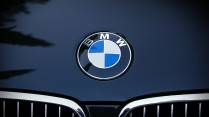Hyundai Motor Group's Air Taxi Unit Eyes New US Facility
By Dabbie Davis
Nov 24, 2023 05:38 AM EST

Hyundai's air taxi unit, Supernal, plans on building a U.S. facility for commuter-focused electric eVTOL aircraft production. They'll unveil a prototype at CES in Las Vegas this January.
Plans for Supernal Facility in U.S.
Hyundai Motor Group's air taxi division, Supernal, announced its intentions to construct a manufacturing facility in the United States for the production of electric flying taxis designed for commuter use, as revealed by the South Korean automotive conglomerate. Reuters reported, Supernal Chief Executive Officer Shin Jaiwon has set a target for a test flight in December 2024, with the eVTOL taxi boasting a top speed of 120 mph (193 kph) and the ability to accommodate a pilot and four passengers.
Reuters cited his interview with Bloomberg. Moreover, Electric air taxi companies, aiming to alleviate urban congestion with eco-friendly solutions, have garnered investment from major airlines like Delta Air Lines Inc. However, they are still in the developmental stage and have yet to achieve commercial operations.
Last month, Hyundai Motor Group signed an agreement with Korean Air Lines (003490.KS) to work together to accelerate the design of electric eVTOL vehicles and air mobility ecosystem in South Korea.
According to a report by Interesting Engineering, Hyundai Motor Group's significant financial contributions, amounting to around $920 million or 1.2 trillion won, made to Supernal since its inception in 2021, demonstrate a firm dedication to advancing the field of air mobility. This substantial investment reflects the company's determination to introduce innovative transportation solutions to the market.
READ MORE: Cadillac Embraces Future of EV, Unveils Optiq, 2024
Air Taxi - Soon
Recently, T3 shared Hyundai's news, by next year, they plan to have a full-scale technology demonstrator for their Hyundai air taxi EVTOL, in collaboration with Supernal. This demonstrator will serve as a crucial step in refining the vehicle, bringing it closer to a production-ready version.
The Hyundai and Supernal partnership aims to introduce a four-passenger EVTOL aircraft with room for one pilot. This innovative mode of air mobility will join Hyundai's impressive lineup of future transportation solutions, which includes the fully-autonomous Ioniq 5 robot-taxi. The Ioniq 5 is already in mass production at Hyundai's recently inaugurated Innovation Centre in Singapore, part of their efforts to accelerate its adoption.
T3 also shared, Shin during a private event in Singapore, emphasized the key to a successful launch of AAM (Advanced Air Mobility) vehicles like the Hyundai air taxi EVTOL is to ensure their safety and the ability to manufacture them in a cost-effective, mass-production manner.
Numerous startup enterprises are competing to develop commercial jetpacks, flying motorcycles, and personal air taxis. Venture capitalists and automotive and aviation giants like Uber, with its ambitious Uber Elevate program, have invested in this developing sector. This industry might be worth $1.5 trillion by 2040.
However, amidst these exciting advancements, regulatory aviation authorities are diligently crafting the essential guidelines and safety standards required to govern this transformative realm of transportation. As human venture into the future, urban air mobility holds the promise of revolutionizing our urban commuting and city navigation. Additionally, offering travelers and everyone unparalleled speed and convenience.
RELATED ARTICLE: US Foresees 2023 Record -Breaking Sales in EVs with 10.2 % Increase from Last Year
Copyright @ MOTORTIMES, All rights reserved. Do not reproduce without permission.








